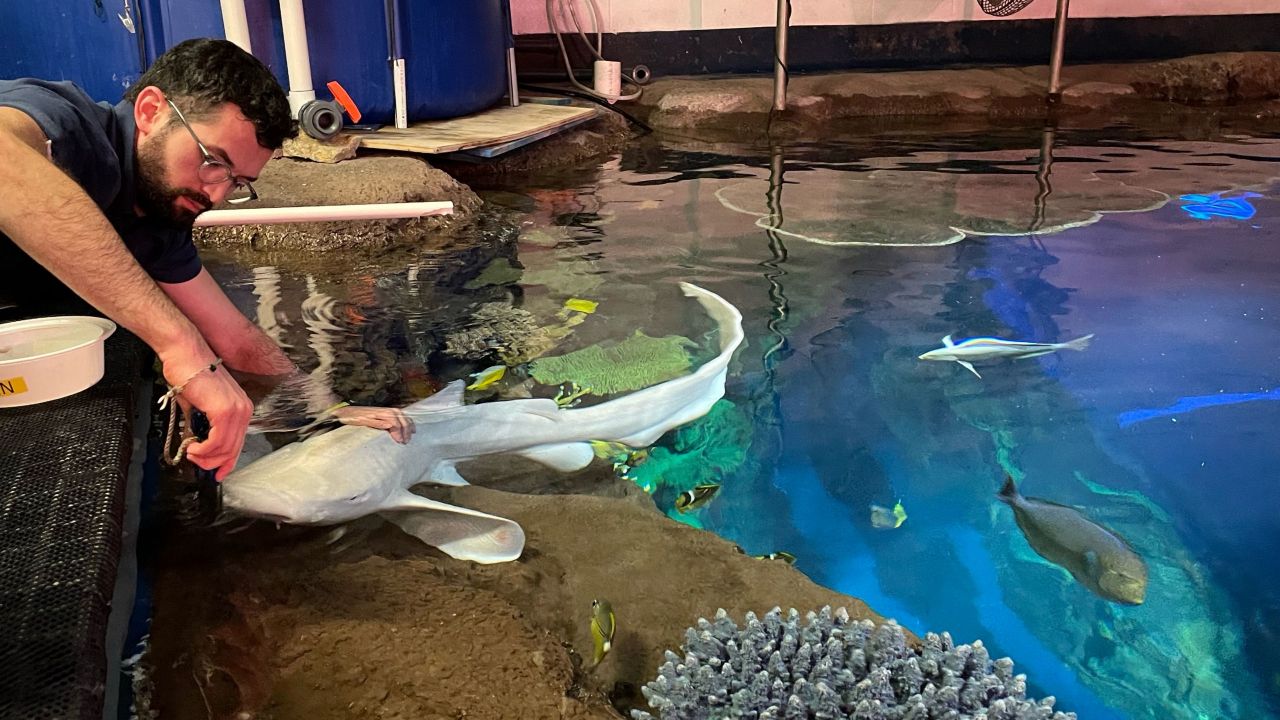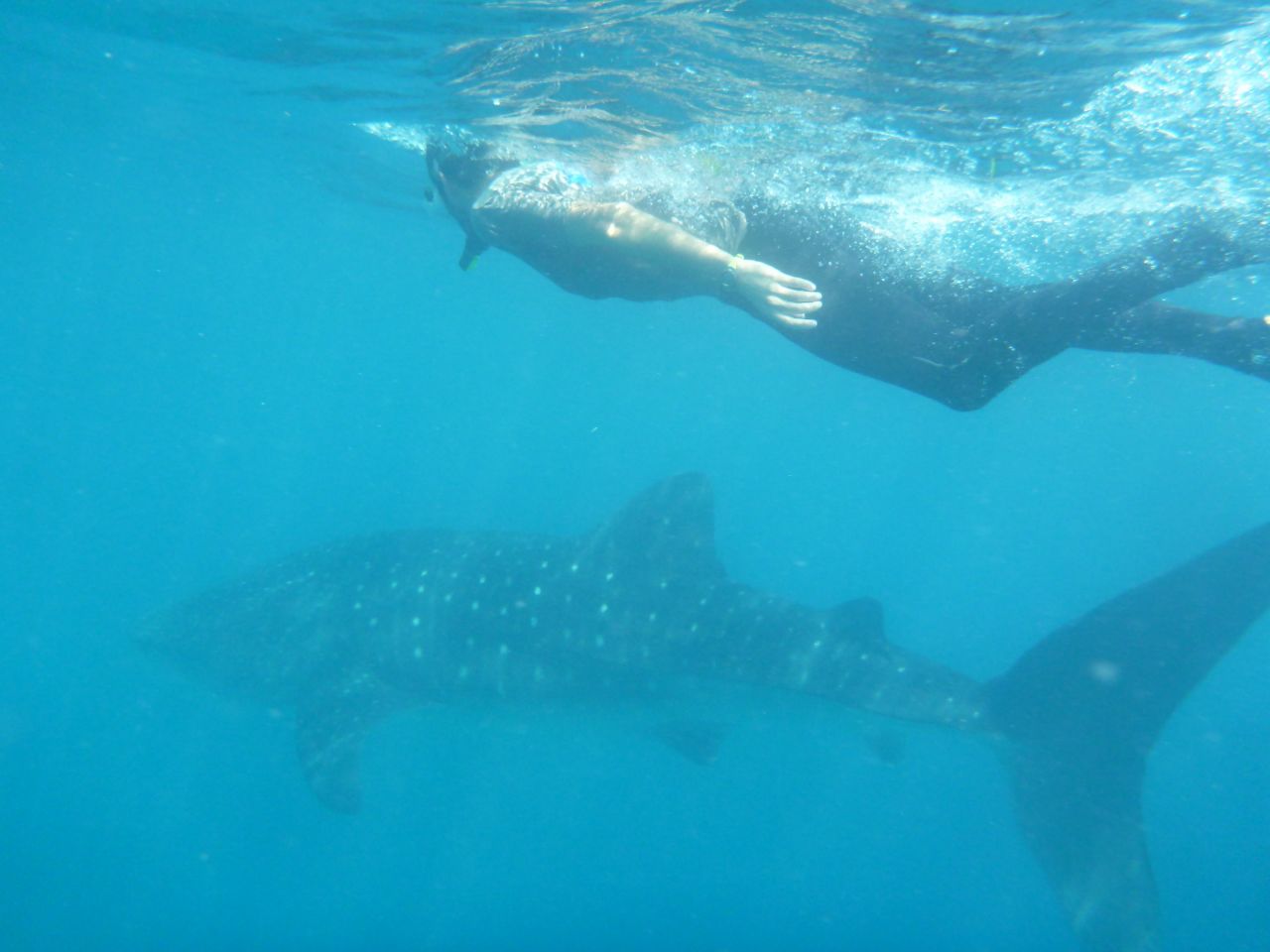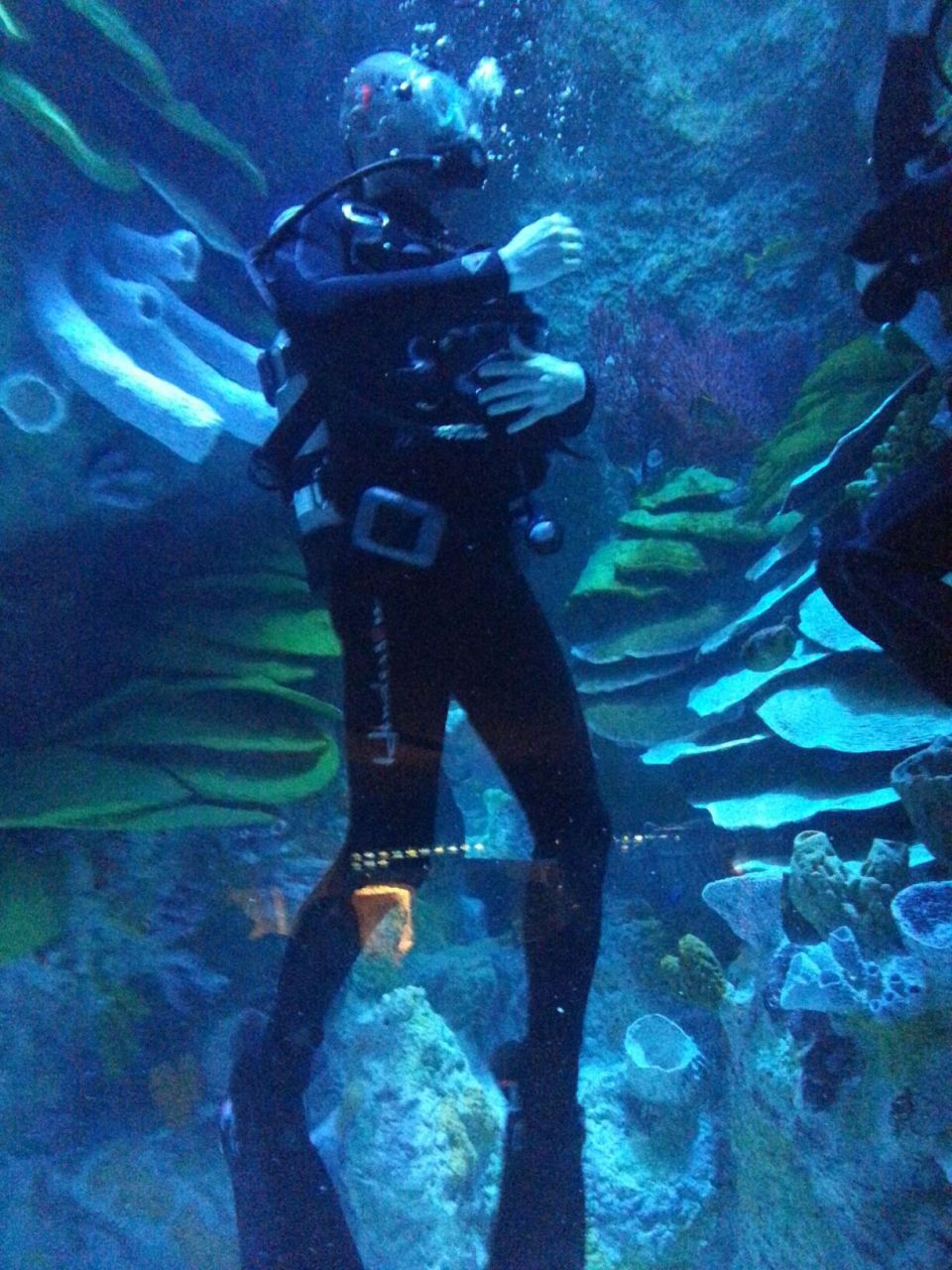This piece comes to us from the Wildlife Conservation Society (WCS). In honor of LGBTQ+ Pride month, Nature and WCS are sharing stories of nature and conservation from members of these communities.
While many people dream of taking care of wild animals, there are few who choose to actually pursue it as a career. It’s not a decision to be taken lightly. The road to a full time, paid position in wild animal care usually involves a gauntlet of volunteering, internships, and temporary positions.
Happily, the end result is a career filled with highly motivated and deeply passionate professionals. For me, there was never a question of whether or not I wanted to work with animals. My passion for animals runs deep; animals have been there for me when humans were not.

Marcus conducting a training session at the New York Aquarium with a zebra shark, Captain Spaulding, and developing trust by pairing physical contact with a food reward. Photo credit: ©Vanessa Daly.
As a flamboyant, male child, I was an easy target for bullying. In a heteronormative society, queer children are often made out to be pariahs by their peers. It was an unpleasant era for me, but there was one silver lining to that period of my life, or rather, one chocolate lining.
Across the street from my childhood home lived a chocolate lab by the name of Louie. Louie, like many dogs, was a bundle of joy. He was a source for the unconditional acceptance that was so acutely absent in other areas of my life. Being a dog, he was likely unaware of just how much he provided me. For him, the main reason we were there was obvious: tennis balls. For me, the main reasons to be there were less concrete.
While Louie chased bouncing, neon spheres, I chased the feeling of belonging, of safety, and of being valued for being me. Usually we think of humans as the caretakers of dogs, but Louie took care of me—an isolated, gay kid—in ways that humans had not. I have since spent the majority of my working life repaying the favor.
I landed my first animal care gig at the age of 13. I volunteered at my local humane society and made the unsurprising decision to work with the dogs. As I grew, so did my interests. I expanded my repertoire in college and volunteered at the local zoo with the big cats and giraffes. That wasn’t enough, however, and I sought to further broaden my horizons.
On an auspicious trip to the aquarium near my university, I was enchanted by the visual buffet of octopuses, sea lions, and coral reefs. The oceans, and the life held therein, captured my imagination like nothing had before. Being from Colorado, my exposure to the oceans was limited.
Perhaps that is why marine life seemed so beautiful and otherworldly to me. I quickly became a certified SCUBA diver and ended up working at the same aquarium in which I had been an inspired visitor. I was lucky enough to subsequently do internships all over the world. I researched humpback whales in Ecuador, cared for Amazonian animals in Peru, and studied whale sharks in the Philippines.

Marcus doing field research on whale sharks while interning with the LAMAVE Project in The Philippines, 2015. Photo courtesy Marcus Parker.
Those experiences showed me that the water was where I truly belonged. Louie had already shown me that animals were with whom I belonged.
In a marriage of the two, I now work at the New York Aquarium, where I care for sharks. I strive to provide the best possible home for them in the same way that Louie provided an emotional home base for me all those years ago. Whether rational or not, there is an indestructible link in my brain between caring for animals and championing the downtrodden.
The eternal words of Dr. Seuss’s Lorax echo through my head: “I speak for the trees for the trees have no tongues.” He advocates for the technicolor plants and animals who cannot do so for themselves. He sees value in them simply for being who they are and defends them against people who would do them harm.

Marcus as a paid SCUBA diver at the New England Aquarium, 2013. Photo courtesy Marcus Parker.
Luckily, I no longer feel like that isolated, gay child. I now have access to a metropolitan city and the support of an employee resource group dedicated to queer employees. Without that chocolate lab in Colorado, though, I’m not sure where I’d be or what I’d be doing for work. The sharks at the New York Aquarium have Louie to thank.
